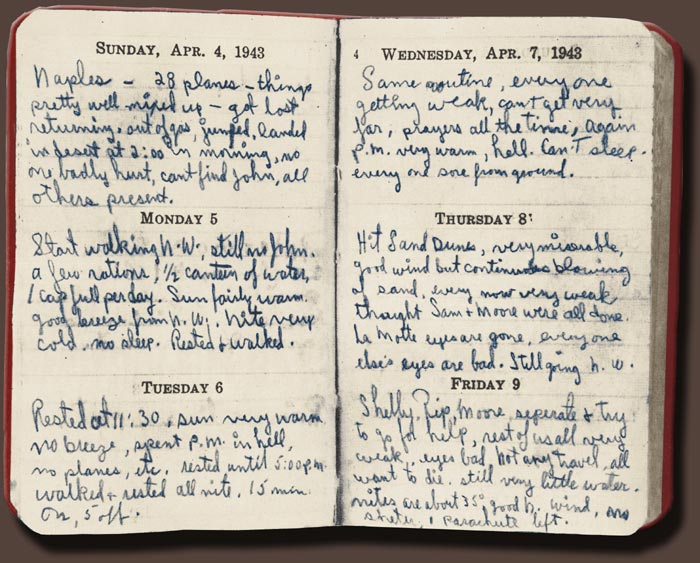A lot of students make mistakes with the past simple tense. They don't remember which verbs are regular and irregular. They don't remember how to make negative sentences and they don't remember how to make questions.
Here are the rules for the past simple: http://kapmanchester.blogspot.co.uk/2014/04/past-tense-practice.html
Here are some more activities you can use to practise:
Making negative sentences: https://quizlet.com/46805819/past-simple-negative-sentences-flash-cards/
Irregular verbs: https://quizlet.com/46288754/21-most-common-irregular-verbs-flash-cards/
General practice:
https://elt.oup.com/student/englishfile/elementary/a_grammar/file05/?cc=us&selLanguage=en
https://elt.oup.com/student/result/engelem/a_grammar/unit09/?cc=us&selLanguage=en
https://elt.oup.com/student/result/engelem/a_grammar/unit10/?cc=us&selLanguage=en
http://www.eslgamesplus.com/practice-irregular-verbs-in-the-past-simple-esl-interactive-hangman/
http://www.eslgamesplus.com/irregular-past-tense-verbs-spelling-activity-online/
http://www.eslgamesplus.com/irregular-past-simple-spelling-activity-online-for-esl/
http://www.eslgamesplus.com/past-simple-irregular-verbs-esl-grammar-interactive-activity-online/
KManchester
Wednesday, 17 June 2015
Listening and Reading
Here is a story you can read and listen to:
https://elt.oup.com/student/englishforlife/elem/b_stories?cc=us&selLanguage=en
You can listen to the story and write the missing words.
You can read the complete story and listen at the same time. You can read aloud while you listen. This will help you improve your pronunciation and your reading speed.
You can listen to or read the story and then write the story from memory. How much do you remember? You can use the pictures to help you. Then give your writing to the teacher in the study centre and they will check it for you.
https://elt.oup.com/student/englishforlife/elem/b_stories?cc=us&selLanguage=en
You can listen to the story and write the missing words.
You can read the complete story and listen at the same time. You can read aloud while you listen. This will help you improve your pronunciation and your reading speed.
You can listen to or read the story and then write the story from memory. How much do you remember? You can use the pictures to help you. Then give your writing to the teacher in the study centre and they will check it for you.
Vocabulary Games
Here is the link to a vocabulary game where you can practise:
countries and nationalities: https://elt.oup.com/student/englishforlife/elem/a_games/e4l_game_10?cc=us&selLanguage=en
household objects and rooms in a house: https://elt.oup.com/student/englishforlife/elem/a_games/e4l_game_13?cc=us&selLanguage=en
days and months: https://elt.oup.com/student/englishforlife/elem/a_games/e4l_game_12?cc=us&selLanguage=en
members of your family: https://elt.oup.com/student/englishforlife/elem/a_games/e4l_game_11?cc=us&selLanguage=en
Here is a list of useful vocabulary: https://elt.oup.com/elt/students/englishforlife/pdf/e4l_elem_455wordlist.pdf?cc=us&selLanguage=en
countries and nationalities: https://elt.oup.com/student/englishforlife/elem/a_games/e4l_game_10?cc=us&selLanguage=en
household objects and rooms in a house: https://elt.oup.com/student/englishforlife/elem/a_games/e4l_game_13?cc=us&selLanguage=en
days and months: https://elt.oup.com/student/englishforlife/elem/a_games/e4l_game_12?cc=us&selLanguage=en
members of your family: https://elt.oup.com/student/englishforlife/elem/a_games/e4l_game_11?cc=us&selLanguage=en
Here is a list of useful vocabulary: https://elt.oup.com/elt/students/englishforlife/pdf/e4l_elem_455wordlist.pdf?cc=us&selLanguage=en
Labels:
Countries,
Days,
Elementary,
Families,
House,
Orange,
Red,
Vocabulary
Tuesday, 3 February 2015
Memory Games
Here are the links to the memory games we played in class:
https://faculty.washington.edu/chudler/puzmatch.html
http://faculty.washington.edu/chudler/stm0.html
http://faculty.washington.edu/chudler/chmemory.html
https://faculty.washington.edu/chudler/puzmatch.html
http://faculty.washington.edu/chudler/stm0.html
http://faculty.washington.edu/chudler/chmemory.html
Thursday, 29 January 2015
Directions
Here is a link to a game which uses directions: http://www.bbc.co.uk/skillswise/game/en33inst-game-destination-impossible
Thursday, 13 November 2014
Reading & Writing Practise
There are lots of different exams that people can take to improve their reading and writing. Here is a link to some exams: http://www.trinitycollege.com/site/?id=3032
You should practise Entry 2 exams. This will give you good reading practise and will give you some good ideas to practise your writing. When you finish your writing, ask the teacher in the Study Centre to check it.
You should practise Entry 2 exams. This will give you good reading practise and will give you some good ideas to practise your writing. When you finish your writing, ask the teacher in the Study Centre to check it.
Thursday, 6 November 2014
How can I improve my English outside class? (Part one)
There are lots of things you can do to improve your English outside class. Here are a few ideas:
1. Write a diary. This is good practice for writing and vocabulary. You can ask the teacher in the Study Centre to check it. Write something in your diary every day. You can write about what you did last night (in the past) or what you are going to do the next day (Tomorrow, I am going to...). You can write about something you saw, something in the news, a person you met... Anything! Two or three sentences is enough.
2. Follow a twitter account or subscribe to a website. This account looks useful for elementary students: https://twitter.com/EP_Learning You could subscribe to a BBC podcast to practise your listening skills. For example, http://www.bbc.co.uk/podcasts/series/6min_gram or http://www.bbc.co.uk/podcasts/series/elt_drama It is important that you listen to the podcast several times a week. These podcasts might be useful for Chinese students: http://www.bbc.co.uk/podcasts/series/aab and http://www.bbc.co.uk/podcasts/series/suk
3. Use songs to improve your vocabulary and pronunciation. http://lyricstraining.com/ is a good website where you can listen to the song and write in the missing words, but you can just listen to a song and find the lyrics on the internet.
1. Write a diary. This is good practice for writing and vocabulary. You can ask the teacher in the Study Centre to check it. Write something in your diary every day. You can write about what you did last night (in the past) or what you are going to do the next day (Tomorrow, I am going to...). You can write about something you saw, something in the news, a person you met... Anything! Two or three sentences is enough.
2. Follow a twitter account or subscribe to a website. This account looks useful for elementary students: https://twitter.com/EP_Learning You could subscribe to a BBC podcast to practise your listening skills. For example, http://www.bbc.co.uk/podcasts/series/6min_gram or http://www.bbc.co.uk/podcasts/series/elt_drama It is important that you listen to the podcast several times a week. These podcasts might be useful for Chinese students: http://www.bbc.co.uk/podcasts/series/aab and http://www.bbc.co.uk/podcasts/series/suk
3. Use songs to improve your vocabulary and pronunciation. http://lyricstraining.com/ is a good website where you can listen to the song and write in the missing words, but you can just listen to a song and find the lyrics on the internet.
IELTS Speaking Part Two
Here is a useful link to some questions you might see in the IELTS Speaking Exam. Remember, in part two, you need to talk about the questions on the card for one minute. The topics are general English (holidays, works, families etc). You need to talk about everything on the card. Look at the tenses used: do you need to talk about the past, the present, or the future:
http://www.usingenglish.com/files/pdf/101-ielts-speaking-part-two-topic-cards-that-tie-in-with-ielts-speaking-part-one.pdf
http://www.usingenglish.com/files/pdf/101-ielts-speaking-part-two-topic-cards-that-tie-in-with-ielts-speaking-part-one.pdf
Thursday, 2 October 2014
Elementary object questions
We use question words when we want to find out information.
The most common question words are:
what for things why for reasons where for places when for times who for people
whose for possession (Whose phone is this? It is Ryan's phone.)
how often for frequency (sometimes, always, never) how far for distance
how long for time (an hour, 30 minutes) how old for age
how much for the number of uncountable nouns (How much fruit do you eat each day?)
how many for the number of countable nouns (How many vegetable do you eat every day?)
how much for the price of countable and uncountable nouns (How much is this laptop?)
how for solving a problem (How do you spell that? How do you say that in English? How do you make kabsa?)
Here is a game you can try. Click on the correct question word:
http://a4esl.org/q/f/z/zz87mca.htm
Here are some activities:
1. https://elt.oup.com/student/headway/elementary/a_grammar/unit04/hwy_elem_unit04_2?cc=gb&selLanguage=en
2. https://elt.oup.com/student/headway/elementary/a_grammar/unit04/hwy_elem_unit04_3?cc=gb&selLanguage=en
The most common question words are:
what for things why for reasons where for places when for times who for people
whose for possession (Whose phone is this? It is Ryan's phone.)
how often for frequency (sometimes, always, never) how far for distance
how long for time (an hour, 30 minutes) how old for age
how much for the number of uncountable nouns (How much fruit do you eat each day?)
how many for the number of countable nouns (How many vegetable do you eat every day?)
how much for the price of countable and uncountable nouns (How much is this laptop?)
how for solving a problem (How do you spell that? How do you say that in English? How do you make kabsa?)
Here is a game you can try. Click on the correct question word:
http://a4esl.org/q/f/z/zz87mca.htm
Here are some activities:
1. https://elt.oup.com/student/headway/elementary/a_grammar/unit04/hwy_elem_unit04_2?cc=gb&selLanguage=en
2. https://elt.oup.com/student/headway/elementary/a_grammar/unit04/hwy_elem_unit04_3?cc=gb&selLanguage=en
Thursday, 25 September 2014
Elementary Listening
Here is a link to some exercises where you can practise listening:
http://www.talkenglish.com/Listening/ListenBasic.aspx
You need to click on the number (for example, #01), then click on Step 1. Then click on Step 2 to answer the questions. Finally, click on Step 3 and listen to the conversation again, but now you can read the text too.
Here is another link to some more listening practise: http://www.esl-lab.com/
http://www.talkenglish.com/Listening/ListenBasic.aspx
You need to click on the number (for example, #01), then click on Step 1. Then click on Step 2 to answer the questions. Finally, click on Step 3 and listen to the conversation again, but now you can read the text too.
Here is another link to some more listening practise: http://www.esl-lab.com/
Modals of obligation: Have to / Don't have to
We often want to talk about choices. For example,
1. "What do you want: a chicken sandwich or a cheese sandwich?" Here there is a choice. You can eat chicken or cheese. "You don't have to eat chicken. You can eat cheese."
2. "What do you want: a chicken sandwich or a chicken sandwich?" Here there is no choice. You can only eat chicken. "You have to eat chicken."
1. "What do you want: a chicken sandwich or a cheese sandwich?" Here there is a choice. You can eat chicken or cheese. "You don't have to eat chicken. You can eat cheese."
2. "What do you want: a chicken sandwich or a chicken sandwich?" Here there is no choice. You can only eat chicken. "You have to eat chicken."
Labels:
Blue,
Elementary,
Grammar,
Have to
Subscribe to:
Posts (Atom)







